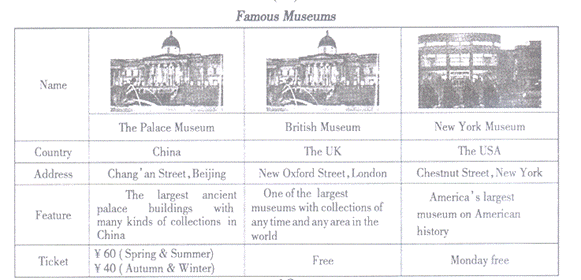题目内容
Hundreds of years ago, news was carried from place to place by people on foot or by horse. It took days, weeks and sometimes months for people to receive news. Now it is possible to send words and pictures around the world in seconds(秒). Billions of people learn about news stories of their own country and all over the world every day, either by watching TV or reading newspapers.
Newspapers have been an important part of everyday life since the 18th century. Many countries have hundreds of different newspapers. How do newspaper editors(编辑) decide which news stories to print (印刷)? Why do they print some stories and not others? What makes a good newspaper story?
Firstly, it is important to report new stories. TV stations can report news much faster than newspapers. Yet, newspapers give more about the same story. They may also look at the story in another way, or they may print completely (完全地) different stories to those on TV.
Secondly, a news story has to be interesting and unusual. People don’t want to read stories about everyday life As a result, many stories are about some kind of danger and seem to be "bad" news. For example, newspapers never print stories about planes landing safely, instead they print stories about plane accidents.
Another factor(因素) is also very important in many news stories. Many people are interested in news in foreign countries, but more prefer to read stories about people, places and events (事件) in their own country. So the stories on the front page in Chinese newspapers are usually very different from the ones in British, French and American newspapers.
小题1: According (根据) the passage, how do people learn about news stories in the world now?
小题2: The difference between newspaper stories and TV news reports is that .
小题3: To make a good newspaper story, how many factors does the passage talk about?
小题4:According to the passage, which of the following can you most possibly watch on TV?
小题5:Which of the following is Not True of this passage?
Newspapers have been an important part of everyday life since the 18th century. Many countries have hundreds of different newspapers. How do newspaper editors(编辑) decide which news stories to print (印刷)? Why do they print some stories and not others? What makes a good newspaper story?
Firstly, it is important to report new stories. TV stations can report news much faster than newspapers. Yet, newspapers give more about the same story. They may also look at the story in another way, or they may print completely (完全地) different stories to those on TV.
Secondly, a news story has to be interesting and unusual. People don’t want to read stories about everyday life As a result, many stories are about some kind of danger and seem to be "bad" news. For example, newspapers never print stories about planes landing safely, instead they print stories about plane accidents.
Another factor(因素) is also very important in many news stories. Many people are interested in news in foreign countries, but more prefer to read stories about people, places and events (事件) in their own country. So the stories on the front page in Chinese newspapers are usually very different from the ones in British, French and American newspapers.
小题1: According (根据) the passage, how do people learn about news stories in the world now?
| A.They carry news stories and tell others from place to place oh foot or by horse. |
| B.They tell each other what they have seen with their eyes. |
| C.They watch TV or read newspapers. |
| D.They listen to the radio every day. |
| A.people can learn more about the same news story from a newspaper |
| B.people can read the news story more quickly in a newspaper |
| C.people can read news stories in other countries |
| D.people can read news’ stories about their own country |
| A.Two. | B.Three. | C.Five. | D.Six. |
| A.You often play football with your friends after school. |
| B.Your teacher has got a cold. |
| C.A tiger in the city zoo has run out and hasn’t been caught. |
| D.The bike in the front of your house is lost. |
| A.News stories on the front page of every country are always the same. |
| B.People like to read interesting and unusual news. |
| C.Not only TV but also newspapers can help people to learn what is happening around the world. |
| D.Newspapers have been an important part of everyday life for more than three hundred years. |
小题1:C
小题1:A
小题1:B
小题1:C
小题1:A
文章讲的是新闻的两种传途径:电视和报纸,并讲了如何成就好的报纸故事的方法。
1. C 细节题,根据either by watching TV or reading newspapers可知有两种途径:电视和报纸,故选C。
2. A 推理题的考查。从newspapers give more about the same story可知报纸多讲的是相同的故事。从TV stations can report news much faster than newspapers电视要比报纸快一些,故B错。C,D文章并未讲,故选A。
3. B 细节题。从文章来看有三个,文章用了first,second,another factor来说,故三个方面,选B。
4. C 根据文章a news story has to be interesting and unusual可知新故事要求趣味性及不寻常性,再从many stories are about some kind of danger and seem to be "bad" news可知要有一定的危险性的,故C考虑从动物园跑出来最合适。
5. A 此题考查的也是细节题,我们采用排除法来做。从So the stories on the front page in Chinese newspapers are usually very different from the ones in British, French and American newspapers可知每个国家的版面的首页是不同的,故A错,其它的正确,故选A。

练习册系列答案
相关题目
 tory mainly tell us about?
tory mainly tell us about?



